What is music therapy?
Music therapy is a clinical intervention, delivered by Health and Care Professions Council (HCPC) registered music therapists. Training in music therapy is at the Master’s level.
Within neuro-rehab settings, music therapy can be used to support rehabilitation in areas such as communication, mobility, cognition and emotional well-being. Music therapists use a variety of techniques including improvisation, music listening, songwriting and specific Neurologic Music Therapy techniques. It is not dependent upon musical skill or background.
At the RHN, music therapy programmes are individually tailored and goal orientated. We do many joint sessions with other health professionals to aid the MDT therapeutic programme for the patients. Music therapy is funded via voluntary contributions so adds value to the other interventions offered by the RHN.
Feedback formTo open a PDF you may need to download Adobe Reader
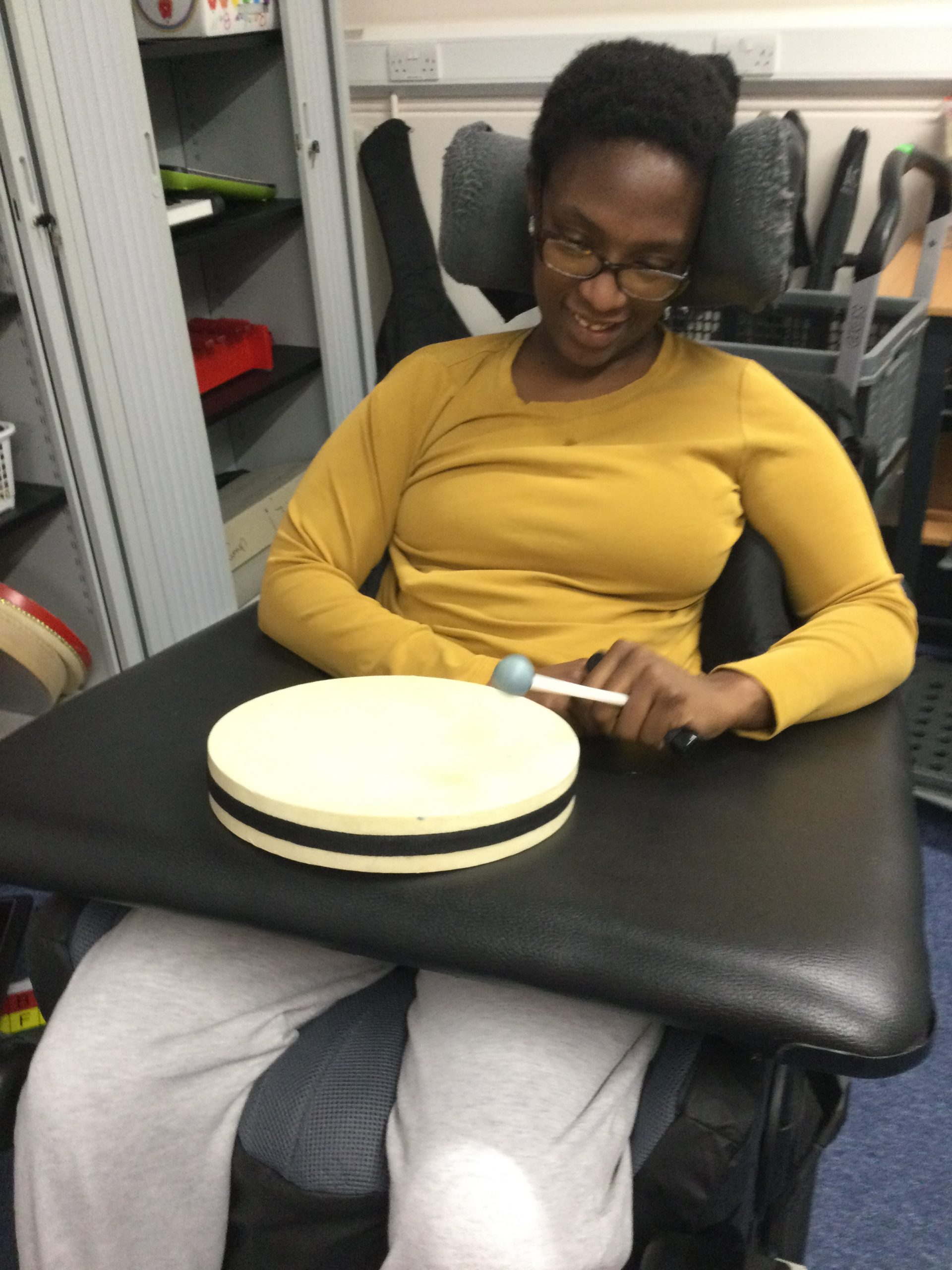
To see a fascinating brief history of music and healing as well as music at the RHN
Click hereTo open a PDF you may need to download Adobe Reader
Ruth Balkansky
In 2017, Ruth suffered from a brain aneurysm which left her unable to speak and walk, with no memories of her life before. After 12 operations on her brain, Ruth was transferred to our care in January 2018.
“When I arrived at the RHN, I couldn’t do anything. I couldn’t talk or eat and I had terrible trouble trying to remember things.” Since she arrived at the RHN, Ruth has received expert care and benefits from a range of charity-funded therapies. “I have seen a massive improvement since I arrived at the RHN. I’m able to talk now, and I had my PEG removed so I can eat on my own. I do music therapy every Tuesday, which I enjoy, despite not being able to sing!”
Music therapy is just one of many additional therapies and activities which we can offer to patients and residents thanks to the generous donations of our supporters.
Music therapy harnesses the emotional effect and structural components of music to help people with Neuro-disability in their physical and thinking skills, communication and emotional expression. Improvements are made through several methods and techniques including instrumental improvisation, songwriting and song singing. Neurologic music therapy techniques are evidence-based. Music is processed in many parts of the brain, which makes it an excellent tool for helping people with neuro-disability. Music can also take a person to a place free from disability and to positive memories resulting in a sense of well-being.
Ruth was referred to music therapy for use of her upper limbs, to help attention and as a means of self-expression. Initially, Ruth found it difficult to wait for assistance on the ward so a song was composed to help her stop, think and breathe. Ruth has been involved in different therapeutic musical activities. She has moved from shifting her attention between two musical instruments to 6. She has gained confidence in singing on her own and has been able to wait for her turn in duets. She has now written six songs on themes such as her rehabilitation journey, her family, Christmas and her experience during the COVID outbreak.
When asked how music therapy helped Ruth, she said:
“It helped me focus and because of my love for musical theatre have become more confident to sing. Rosanne has been very supportive and even came up to my room with her piano. I have done things I never thought I’d be able to. I never thought I would write a song.”
Click here for an excerpt from Ruth's song
Song Parody of ‘I will survive sung by Gloria Gaynor’
Just turn around now, cos you`re not wanted anymore
You tried to hurt us
With the infection
Did you think I’d give up
Did you think I’d lay down and die
O not I, I will survive’
How I ended up being a Music Therapist
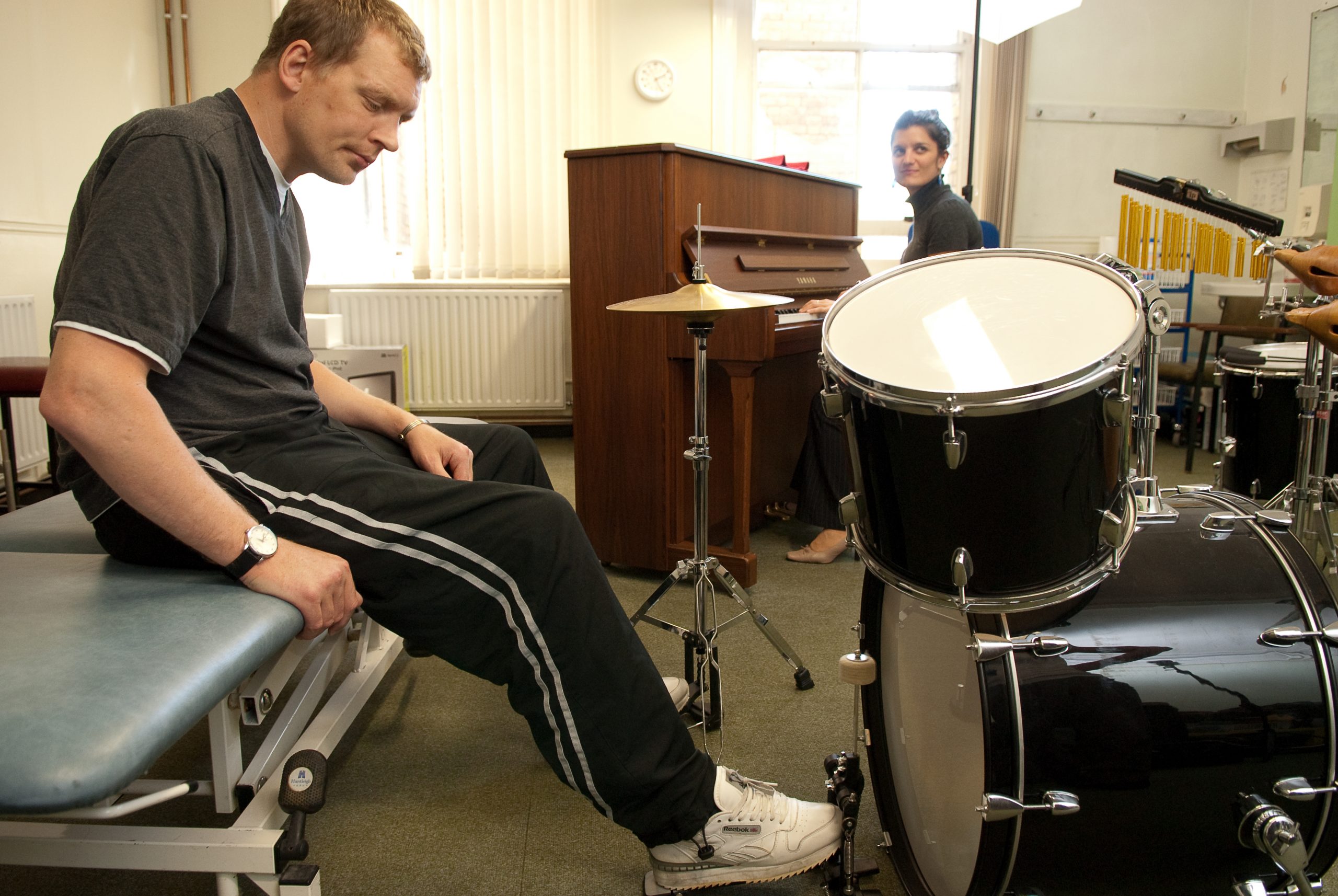
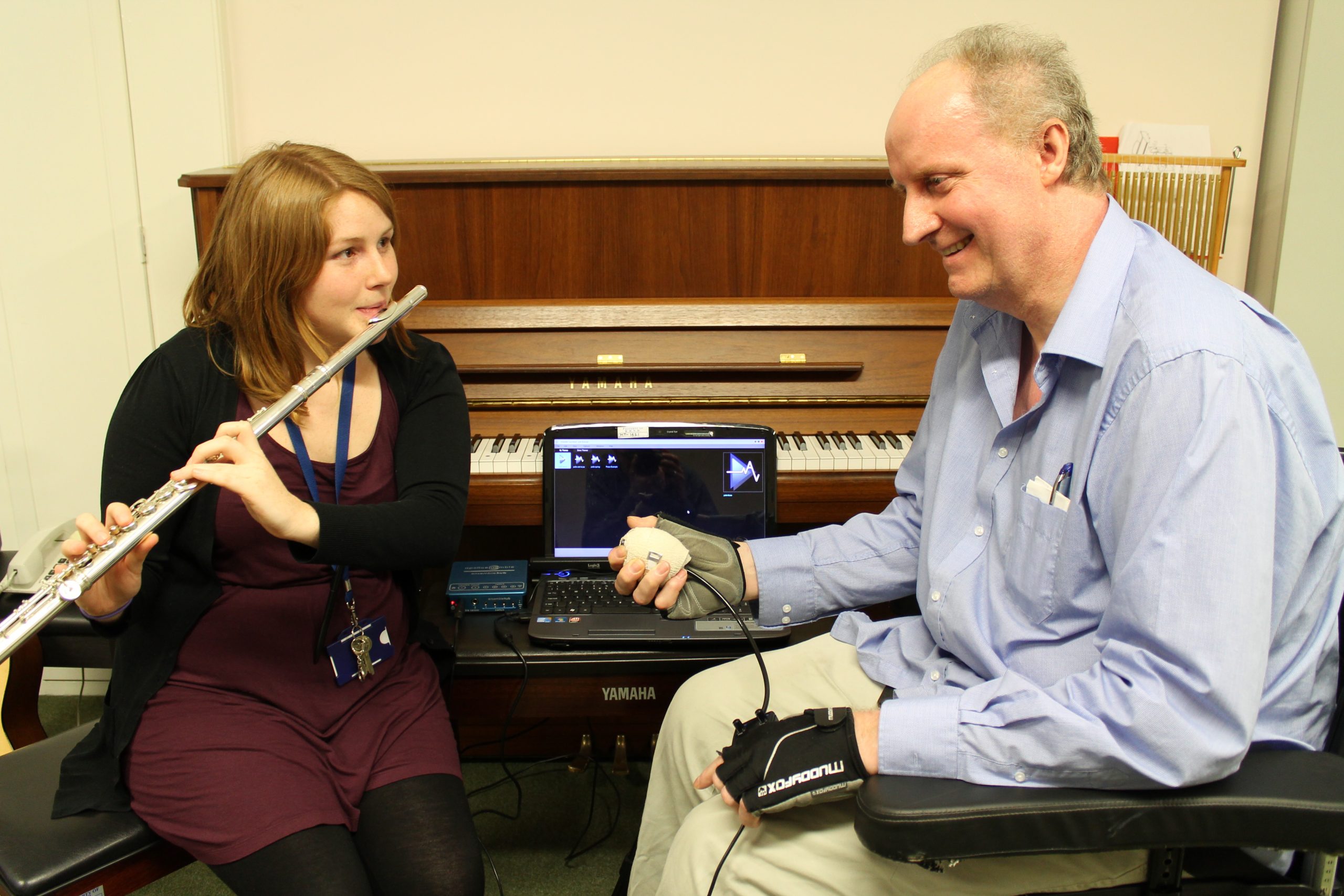
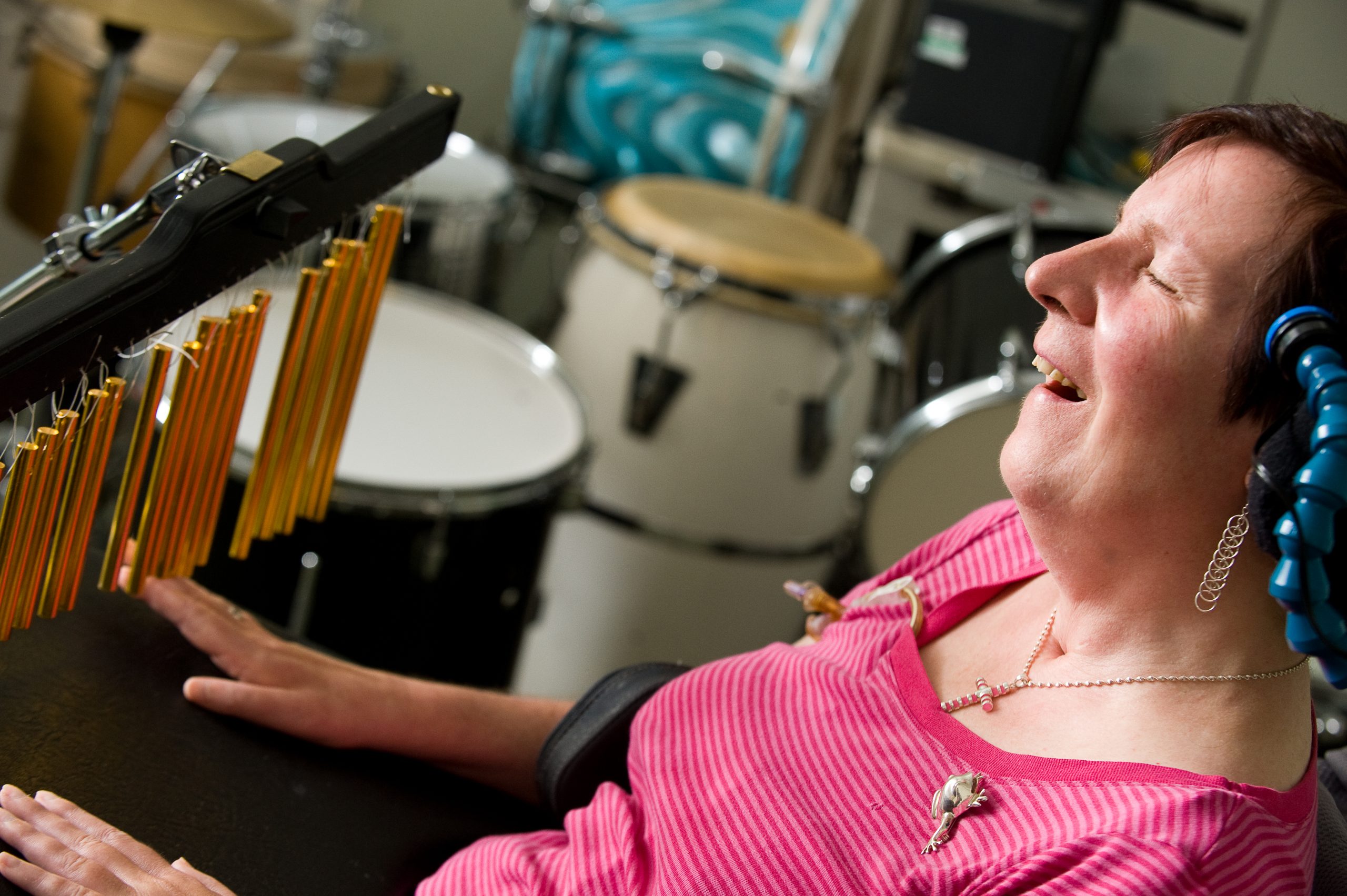
Catching up with a friend about our latest artistic endeavours over dinner one night, her forensic psychiatrist partner asked, “Are you a music therapist?” “No, why?” I replied. He proceeds to tell me a fascinating story about his work with a Music Therapist.
With a diverse background as a musician, tutor, designer, advertising professional, and photographer, I have always been curious about the psychology of communication… how we communicate, what influences us, and what changes us. Alongside my recording and performing, I had made a successful and comfortable career in advertising. However, I felt unfulfilled in my work, and this dinner conversation seemed to pull my passions together into one bow. I returned to the UK and pursued a Masters in Music Therapy at the Guildhall School of Music & Drama, with a focus on mental health, neurodiversity, and neuro-rehabilitation.
Music is such a diverse medium and does seem to make everything easier! Whether it is motivating exercise, eliciting speech, recalling memories, learning new information, social interaction, or navigating difficult and painful emotions, music seems to find different ways of connecting and opening doors that then allow for the harder work of change to begin. I was initially very focused on the use of Neurologic Music Therapy techniques but have since become far more engaged with psychotherapy techniques and improvisation (my old tutor still finds this entertaining!). I have received further training in Dialectical Behaviour Therapy to inform my practice.
How I ended up here seems both random and pre-determined. My work is incredibly rewarding, and I love the beautiful butterfly effect of reaching the individual, the families, friends, and the communities in which we live. Amanda Thorpe, Music Therapist Senior II (Thursday 5th May 2022)
To read about the value of music for RHN patient, Trudi, in an interview transcript carried out with Michael Jenkins
Click hereTo open a PDF you may need to download Adobe Reader
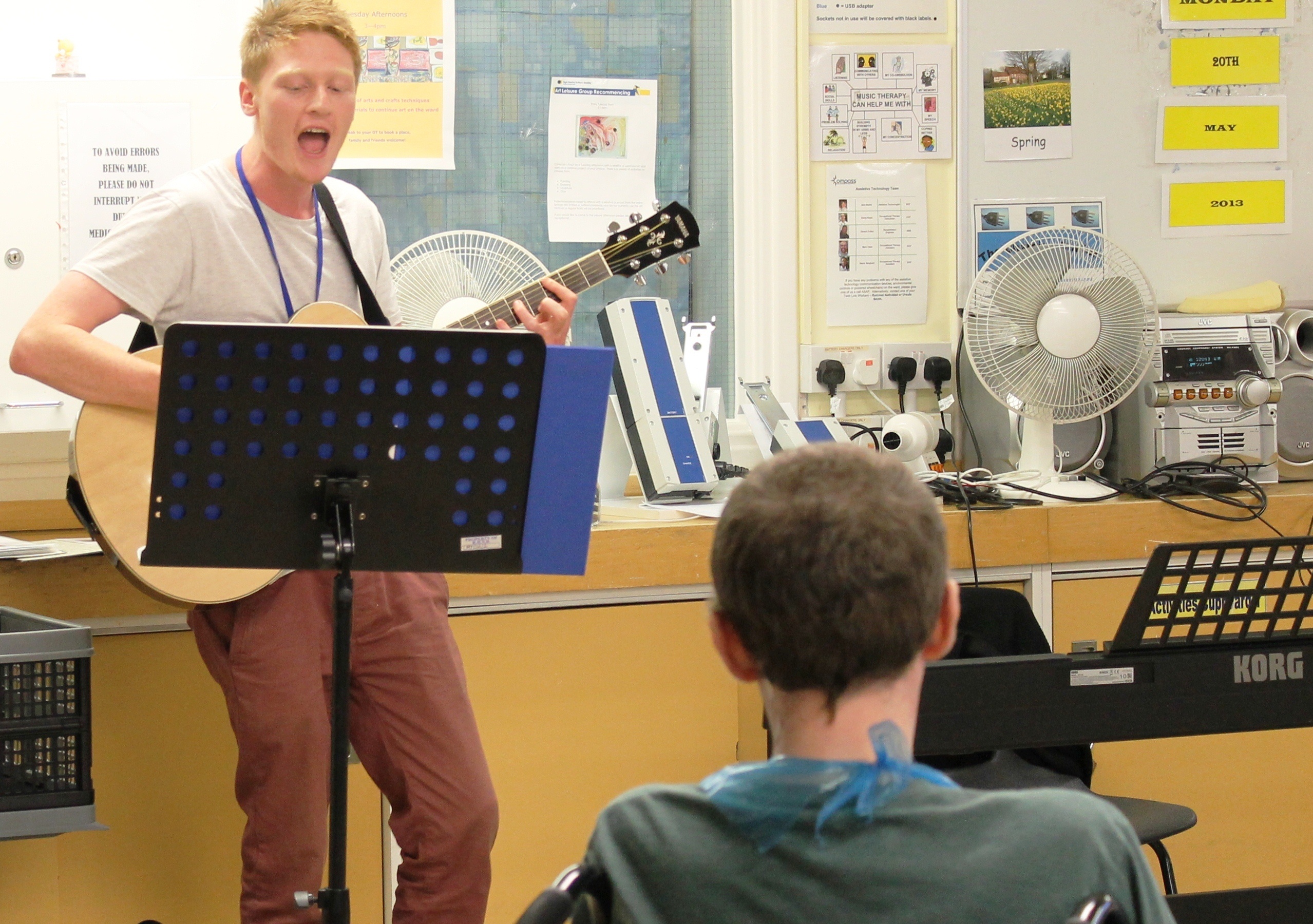
Find out more
View PosterTo open a PDF you may need to download Adobe Reader
View PosterTo open a PDF you may need to download Adobe Reader
View PosterTo open a PDF you may need to download Adobe Reader
View PosterTo open a PDF you may need to download Adobe Reader
View PosterTo open a PDF you may need to download Adobe Reader
View PosterTo open a PDF you may need to download Adobe Reader